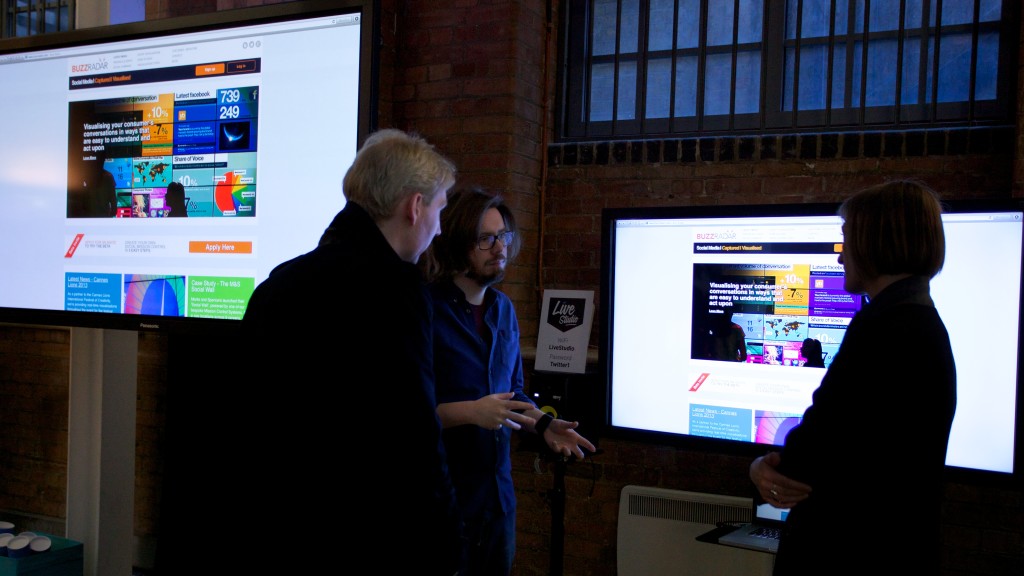Following our recent breakfast at Number 10 Downing Street, we caught up with one of the entrepreneurs in attendance that day – Patrick Charlton, Director & Co-Founder of Buzz Radar – on how his startup’s growth journey differs from the norm
Like millions of others, I’m hooked on the Great British Bake Off. It’s formulaic, dramatic, and, in many ways, reminds me of the process startups go through to fund themselves. In theory, you’re expected to follow the traditional recipe whilst adding your own creativity. But Star Baker is often awarded to those that break the mold, go it alone and succeed of their own accord. Allow me to explain.
A few weeks ago, Tech City UK kindly invited me to have breakfast with leading lights of the startup community at Downing Street. It was truly an amazing, unique experience, but once people started talking about the growth opportunity for tech in the UK, I had a very familiar feeling. I felt like I was on an entirely different planet.
I founded Buzz Radar three years ago. I had been working at an agency running social campaigns and spotted a problem that needed fixing. Reports suck, no one likes reading them, and they are out-of-date the moment you print them. With that insight I was able to bring together some amazing talent to build a real-time data visualisation platform, pitching it as a social command centre for brands and agencies. We launched at Cannes Lions in 2012 and have never looked back.
I’m sure you’ve heard similar stories a bunch of times. However, we’ve deviated from the standard popular startup recipes: we’ve bootstrapped the business from the beginning and have very little interest in taking investment at this stage.
Don’t get me wrong – there’s no right way or a wrong way to grow a business. I believe that if you listen to the tech community in London, its success can be largely attributed to capital raises in some form. Industry publications almost exclusively celebrate funding milestones and use this as a benchmark for success. But it strikes me that this leaves founders often spending the majority of their time trying to secure their next round of funding. And that’s not the approach we wanted to take.
You rarely hear about big customer wins or great product releases in the tech startup industry. This is giving young startups the impression that the funded route is the only to go.
So why bootstrap? Here’s why we took the route we did:
1) Control: This is a big one for us. The minute you take on money, no matter what the terms, you’re surrendering an element of control. You’re also positioning your company for some form of exit in order to repay those investors. No matter how pure those investors intentions are, you are now indebted to them; they own you.
Peter Theil once said, “The biggest secret in venture capital is that the best investment in a successful fund equals or outperforms the entire rest of the fund combined.”
We knew from day one that we had a great team, a great product that people love, linear growth and an awesome roadmap. But, at this stage, we didn’t fit the profile of a billion dollar unicorn that VCs are so hungry to find. We also had a strong idea of where we were going and what we wanted to do. In short, the VC route just wasn’t for us. Our profits have always done a great job of funding growth, so we don’t take money we don’t need.
2) Customer-led Product Development: Without outside funding you are forced to rely on your customers to buy your product. You live and die by how good your product, marketing and sales processes are. This is an awesome feedback loop – it forces you to listen and refine, refine, refine without any distractions from people who aren’t using your product.
3) Fun and Focus: This is really the key to it all for us. The reason we started our company was to fix a deeply challenging problem with a huge amount of creativity. It involves a lot of different angles: data science, graphic design, animation, etc. That’s the bit we were interested in; scaling was a natural byproduct of doing a great job. Our customers have funded our development through sales and allowed us to have time to perfect the product, making it the envy of our competitors.
If we had investors, we’d be worried about paying them back and keeping them happy. We aren’t forced to hire lots of people all at once, ensuring that we only hire people who are amazingly talented and we enjoy working with. Our expectations, while very ambitious, are not near-impossible. I see a lot of people in startups who have done incredible jobs but have had crazy targets to hit. The disappointment of that can be crushing and miserable.
4) More Time For Leadership: You also see founders in the unfortunate position of having to run around the world looking for the next round of funding. I’m able to split my time evenly between our customers, partners and the team, which allows me to have an invaluable oversight of everything that’s going on and allows me to develop granular understanding of the business at a day-to-day level.
So, while funding can open up new opportunities for startups, it isn’t the only way forward. There’s absolutely nothing wrong with sticking to the startup recipe. However, we believe you can succeed without funding by going it alone – and there are potentially big benefits to that.







